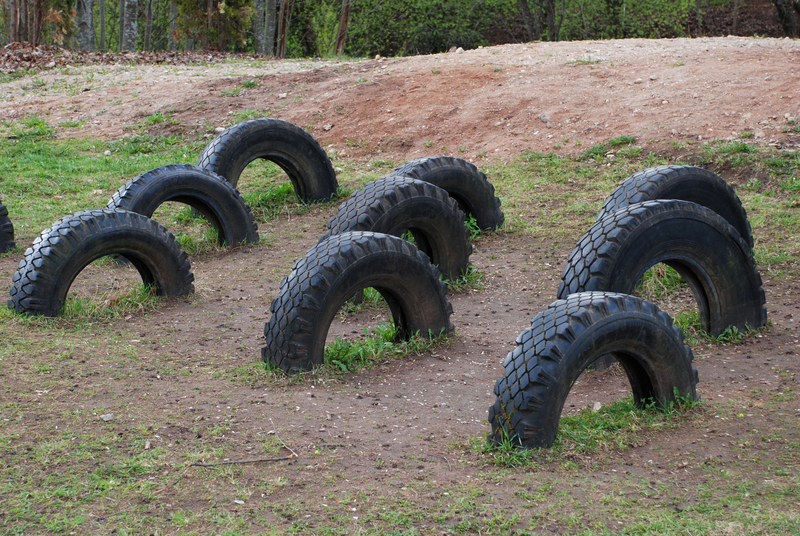Budget-Friendly Methods for Managing Bulky Waste Items
Managing bulky waste items can be a daunting task, especially for households on a tight budget. Items such as old furniture, mattresses, broken appliances, or other large stuff quickly occupy precious space, and standard disposal methods can often be expensive and inconvenient. Fortunately, there are budget-friendly methods for bulky waste management available that not only save you money but also contribute to environmental preservation. This article offers comprehensive guidance on affordable bulky waste disposal, recycling, and creative reuse ideas, helping you clear your space without breaking the bank.
Understanding Bulky Waste and Its Challenges
Bulky waste refers to items too large for regular curbside waste collection. This category includes things like:
- Old sofas, couches, and armchairs
- Large appliances (refrigerators, washing machines, ovens, etc.)
- Beds, mattresses, and box springs
- Wardrobes, cabinets, and desks
- Carpets and rugs
- Large gardening equipment and tools
Disposing of these items irresponsibly can lead to environmental problems and even fines. Moreover, renting dumpsters, hiring skip bins, or paying for private haulers can get expensive. But what if you could manage bulky waste affordably, or in some cases, for free?

Effective and Affordable Bulky Waste Management Strategies
Below, we've compiled a range of budget-friendly bulky waste disposal methods. Each approach is designed to save you money and offer environmentally responsible solutions for managing large unwanted items.
1. Make Use of Municipal Bulky Waste Collection Services
Many local governments offer free or low-cost bulky waste pick-up days as part of their regular waste management services. Services often include scheduled curbside collection for items that don't fit in standard bins.
- Check your city or town's waste management website for upcoming bulky item collection days
- Register in advance if required--many municipalities have sign-up systems
- Follow guidelines for what can and cannot be collected (some exclude appliances or electronics)
- Prepare items properly--some areas may require items to be disassembled or placed in specific locations
2. Drop-Off at Local Recycling Centers or Transfer Stations
Local recycling centers or transfer stations frequently accept large waste items at significantly lower rates than private removal services. Many even accept specific items, like mattresses or white goods, free of charge as part of government recycling schemes.
- Search online for your nearest facility
- Check accepted item lists, fees (if any), and drop-off rules
- Some centers offer periodic free drop-off days for residents
3. Sell or Give Away Unwanted Items
One person's junk is another's treasure! If your bulky items are still in usable condition, consider these eco-friendly and profitable disposal options:
- Sell them: Use online marketplaces like Facebook Marketplace, Craigslist, Gumtree, or OfferUp to list your items for free or at low prices.
- Give them away: Post on platforms such as Freecycle, Buy Nothing groups, or your local community Facebook groups. You may find someone happy to come and take bulky items off your hands.
- Host a garage sale: Combine clearing your bulky waste with making a little extra money in your neighborhood.
4. Donate to Charities and Non-Profits
Many charities and social enterprises accept furniture and appliances in good condition. Donating is a great way to support your community and reduce landfill waste.
- Contact local branches of organizations like Goodwill, The Salvation Army, Habitat for Humanity, or local shelters
- Some charities offer free pickup services for large items, saving you both time and effort
- Request a receipt for possible tax deductions if eligible
5. Creative Reuse and Upcycling
Instead of discarding bulky items, consider creative ways to repurpose or upcycle them:
- Turn old ladders into shelving units
- Create garden planters from bathtubs or washing machine drums
- Use salvaged timber, doors, or windows for DIY projects
- Transform broken furniture into pet beds or dollhouses
- Search online for upcycling tutorials and project ideas
6. Bulk Waste Collection Through Community or Apartment Management
If you live in an apartment complex or managed community, bulk waste removal might already be included in your service fees.
- Check with property management or homeowners association (HOA) for scheduled bulk waste pick-up dates
- Coordinate with neighbors to dispose of items together, potentially lowering costs
- Inquire about community dumpster or collection points intended for large items
7. Rent or Borrow a Vehicle for DIY Bulky Waste Haul
Hiring a professional hauler can be expensive. Instead, consider renting a van or borrowing a truck from a friend for a few hours. This method:
- Lets you drop off large items at a transfer station or recycling center on your schedule
- Reduces the need for expensive pickup services
- Allows you to help friends, family, or neighbors with their bulky waste, sharing costs and effort
Important Tips for Budget Bulky Waste Advice
- Plan ahead to take advantage of free or scheduled collection events
- Break down large items (when possible) to make handling and transport easier
- Combine trips to donation centers, recycling facilities, or landfills to save on fuel
- Keep receipts for tax deduction if donating to a registered charity
- Use reusable covers or tarps when transporting items to avoid damage or fines
Environmental and Legal Considerations
Disposing of bulky waste items responsibly is not just a matter of convenience or budget--it's an important aspect of protecting your environment and community. Many cities have strict regulations against illegal dumping, and offenders may be fined. Responsible disposal options help:
- Prevent pollution and wildlife hazards
- Reduce landfill usage and associated environmental impacts
- Maximize the recycling of valuable materials like metals, plastics, and textiles
- Support second-hand economies and charities
Frequently Asked Questions (FAQs)
Q: What is considered bulky waste?
A: Bulky waste includes items too large for regular household bins, such as furniture, appliances, mattresses, large carpets, and some garden waste. Always check your local council's definitions and pickup policies.
Q: Can I leave bulky waste on the curb?
A: In most areas, you can only leave bulky waste on the curb during scheduled collection times. Unscheduled dumping may result in fines.
Q: Are there free bulky waste disposal options?
A: Yes, many municipalities, charities, and recycling centers offer free or low-cost options--for example, designated drop-off days or charity pickups for usable items.
Q: Is it possible to make money from bulky waste?
A: Absolutely. You can sell items via online marketplaces or at garage sales. Even scrap metal from certain bulky items can be sold at recycling centers.

Key Takeaways: Affordable and Sustainable Bulky Waste Disposal
- Check local government services for free or low-cost collection days
- Use community resources such as donation drives, sharing platforms, or local recycling events
- Be creative with upcycling and reuse before opting for landfill disposal
- Stay environmentally responsible to avoid fines and minimize your ecological footprint
- Plan and prepare--combine loads with friends or neighbors to cut costs on transport and fees
Conclusion: Manage Bulky Waste Affordably and Responsibly
Whether you're downsizing, renovating, or simply decluttering, budget-friendly bulky waste disposal methods are readily accessible. By making use of local government services, recycling centers, donation options, and creative reuse, you can efficiently manage your large unwanted items without incurring hefty expenses. Additionally, responsible bulky waste management contributes positively to your community and the planet.
Explore your options, plan ahead, and remember: The best approach to handling bulky waste is one that is cost-effective, sustainable, and tailored to your unique needs.
Ready to clear out that garage or spare room? Use these affordable bulky waste management tips and enjoy a cleaner, more organized space--without breaking the bank.